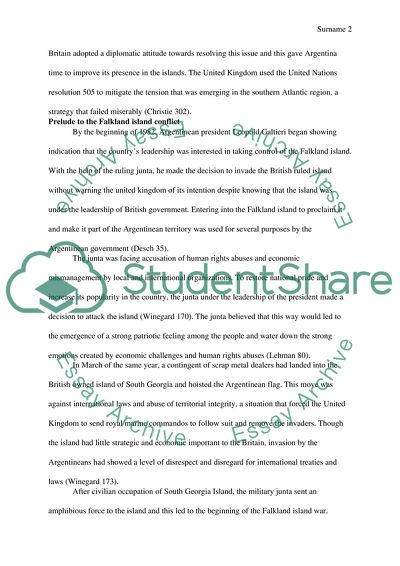Cite this document
(Why Did Britain Go to War over the Falkland Islands in 1982 Essay Example | Topics and Well Written Essays - 3000 words, n.d.)
Why Did Britain Go to War over the Falkland Islands in 1982 Essay Example | Topics and Well Written Essays - 3000 words. https://studentshare.org/history/1854471-why-did-britain-go-to-war-over-the-falkland-islands-in-1982
Why Did Britain Go to War over the Falkland Islands in 1982 Essay Example | Topics and Well Written Essays - 3000 words. https://studentshare.org/history/1854471-why-did-britain-go-to-war-over-the-falkland-islands-in-1982
(Why Did Britain Go to War over the Falkland Islands in 1982 Essay Example | Topics and Well Written Essays - 3000 Words)
Why Did Britain Go to War over the Falkland Islands in 1982 Essay Example | Topics and Well Written Essays - 3000 Words. https://studentshare.org/history/1854471-why-did-britain-go-to-war-over-the-falkland-islands-in-1982.
Why Did Britain Go to War over the Falkland Islands in 1982 Essay Example | Topics and Well Written Essays - 3000 Words. https://studentshare.org/history/1854471-why-did-britain-go-to-war-over-the-falkland-islands-in-1982.
“Why Did Britain Go to War over the Falkland Islands in 1982 Essay Example | Topics and Well Written Essays - 3000 Words”. https://studentshare.org/history/1854471-why-did-britain-go-to-war-over-the-falkland-islands-in-1982.


